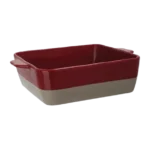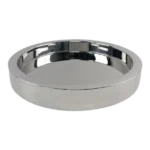Commercial glass recycling
Get a FAST & FREE quote for commercial glass recycling
Just enter your business postcode…
Get a FAST & FREE quote for commercial glass recycling
Just enter your business postcode…
Start saving now
Businesses in the hospitality, retail and other sectors generate large volumes of glass waste that need to be collected and recycled responsibly. A dependable commercial glass recycling service means less hassle and more time to focus on your customers. Here’s how to get started:

Enter your postcode above and tell us about your business’s glass recycling needs, including how often you need collections.

Our experts will review the details and prepare a tailored quote based on your collection frequency and location.

Once you’re happy with the quote, sign your commercial glass recycling contract to activate your service and schedule your collections.
Managing glass waste responsibly doesn’t have to be complicated or costly. Our commercial glass recycling service connects you with trusted providers to ensure your business gets the best value on commercial glass recycling.
Start today by entering your postcode above to find reliable commercial glass recycling collections in your area.

We provide commercial glass recycling services across the whole of Britain, ensuring businesses of all sizes can access reliable and professional waste services, no matter their location.

We work exclusively with the best local commercial waste providers, guaranteeing your business receives quality service from trusted, experienced professionals.

Our team delivers tailored quotes designed to suit your specific business needs and budget, ensuring you receive the best value for money without compromising on service reliability.
Recycling commercial glass is a cost-effective and efficient way to manage your business glass waste. Glass is 100% recyclable and can be endlessly recycled without losing quality, making it one of the most sustainable materials in use today.
Our service connects you with trusted local providers who offer tailored commercial glass recycling collections to suit your business needs and budget. Here are some key benefits of commercial glass recycling:

Separating glass from general waste or mixed recycling can reduce overall commercial waste collection costs. Dedicated glass collections typically have a significantly lower cost per collection.

Recycling glass keeps materials in use longer, reducing the reliance on finite resources. By recycling commercial glass, your business is contributing to a circular economy.

Recycling glass reduces the demand for raw materials such as sand, soda ash, and limestone. This helps preserve natural landscapes and ecosystems, ensuring resources are available for future generations.

Glass takes thousands of years to decompose in landfills, occupying valuable space and contributing to waste management challenges. Using a dedicated commercial glass recycling collection diverts glass from landfills.

Recycling glass uses significantly less energy than manufacturing new glass from raw materials. This helps reduce carbon emissions associated with business waste and helps companies meet sustainability targets.
Recycling glass is simple and effective, but knowing what can and cannot be recycled is crucial. For businesses, there are two main types of recyclable glass:

Recyclable glass bottles include all colours and sizes, such as those used for soft drinks, wine, beer, and spirits. To ensure effective recycling, bottles should be rinsed to remove leftover liquids or residue.

All types of glass jars are recyclable, regardless of colour or size. This includes jars used for jams, sauces, pickles, and spreads. As with bottles, rinsing jars before recycling is essential to prevent contamination.
While many types of glass are recyclable, some materials cannot be processed due to their composition or treatment. Here’s what businesses should avoid placing in their glass commercial recycling bin.
Image source: Nisbets

Used in cookware and laboratory glassware, this type of glass has a different melting point and cannot be recycled with bottle glass.

These materials do not melt at the same temperature as glass and can cause defects in new glass products.

They have different compositions and often contain coatings or treatments that make them unsuitable for recycling with bottled glass.

These contain metals and other materials incompatible with standard glass recycling.

This is lead glass with a different melting point and composition, making it unsuitable for standard glass recycling.

Glass with significant decoration, colouring, or lead content.
Commercial glass recycling is an essential part of responsible waste management for businesses. Across the UK, some cities are leading the way with innovative recycling programs and facilities. We explore the cities below and their efforts to support businesses in managing glass waste.

Manchester’s Longley Lane recycling centre is equipped with state-of-the-art technology to process large volumes of commercial glass waste. Businesses can access Manchester commercial waste collection.

London’s diverse business landscape benefits from extensive glass recycling services. Local councils and private providers collaborate to offer efficient London commercial waste collection for glass and other recyclables.

Cardiff’s commercial glass recycling is mandated by Welsh law, requiring businesses to separate glass waste from other recyclables. Reliable Cardiff commercial waste collection services help ensure compliance.

Glasgow’s glass recycling initiatives are supported by a strong network of local councils and recycling facilities. Businesses benefit from cost-effective Glasgow commercial waste collection that includes glass waste.

Commercial glass waste collected in Leeds is transported to a glass recycling and manufacturing facility in Carlton, a few miles to the south of the city. Businesses use our reliable commercial waste collection in Leeds to handle ongoing recycling needs.

Birmingham businesses achieve high glass recycling rates through partnerships with waste management providers. Efficient Birmingham commercial waste collection makes regular glass recycling simple and dependable.
Nearly 70% of glass packaging waste in the UK is recycled, contributing to an impressive total of 8 million tonnes of recycled glass waste each year.
Sources: UK Gov – Statistics on waste
The following sectors typically produce significant amounts of recyclable glass waste:

Restaurants contribute large volumes of glass waste, primarily from bottles and jars used for soft drinks, wine and cooking ingredients. Our restaurant waste collection services make it easy to manage this waste efficiently.

Pubs produce substantial amounts of glass waste, especially from beer and wine bottles. Pub waste collection services help streamline recycling and support the needs of the hospitality industry.

The hotel industry generates glass waste from food and beverage services, bars and in-room amenities. Hotel waste collection services help manage this consistently across large or multi-site premises.

Retailers, particularly those in food and beverage, generate glass waste through product packaging. Our retail waste collection services support regular recycling and help stores stay compliant.

Hospitals generate recyclable glass waste from food service areas, including kitchens and cafeterias. Hospital waste collection services ensure this is handled safely and in line with regulations.